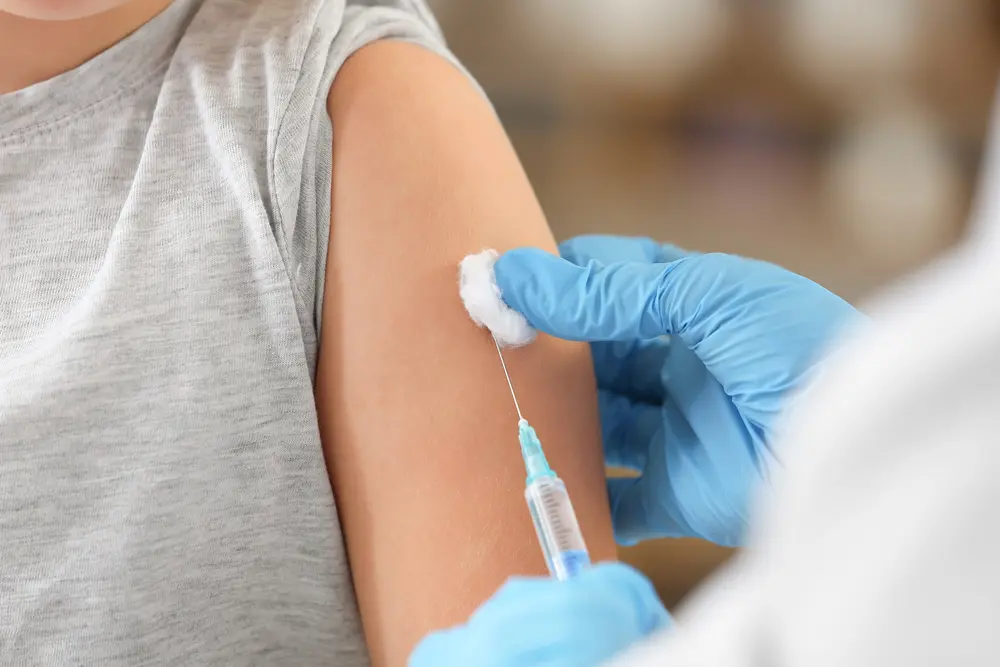Clinical research studies are essential to ensure that vaccines are safe and effective. Not only is this process necessary, but also it is heavily regulated by the U.S. Food and Drug Administration’s Center for Biologics Evaluation and Research (CBER). All vaccines must undergo three phases prior to market approval. The first of these is Phase I, in which small groups of people receive a trial vaccine. Then comes Phase II, in which researchers give the vaccine to a larger, more targeted group of people. Finally, there is Phase III, in which researchers give the vaccine to thousands of people for final testing. Learn more about the phases of clinical research studies for vaccines, and what these phases mean for the groundbreaking COVID-19 vaccines.

Phases of Clinical Research Studies for Vaccines
Vaccine Research Studies: Discovery Phase
The Centers for Disease Control and Prevention (CDC) outline the vaccine trial stages on the agency’s website. But before researchers can complete vaccine development and testing, they must complete an initial “discovery phase.” During this phase, researchers study the structure of the targeted virus. Understanding viral structure – its genetic makeup, for example – is key when creating an effective vaccine. This process usually takes several years. The discovery phase concludes when scientists are able to select the type of vaccine that is most compatible with the targeted virus’s characteristics.
Clinical Research Studies for Vaccines
Before vaccines can undergo clinical research studies with human participants, they must first undergo pre-clinical testing. Pre-clinical testing allows scientists to study the vaccine’s safety and efficacy on animals before moving to testing in humans. After a vaccine is approved through pre-clinical testing, it must undergo three trial phases. Researchers may stagger the three phases by a gap of at least one to two years, depending on the results of each phase:
- Phase 1 clinical research study: The first phase of clinical research studies involves a small test group – usually less than 100 people – and helps determine if the vaccine is generally safe. This phase also helps scientists determine the best dosage for the vaccine.
- Phase 2 clinical research study: Once a vaccine advances past the first phase, it requires a larger study group – typically a few hundred volunteers. This phase focuses on efficacy, or how well the vaccine works. These studies also help inform side effects.
- Phase 3 clinical research study: The final stage of vaccine testing usually includes thousands of volunteers. This stage incorporates a placebo vaccine, also known as a control medication. Participants receive either the placebo vaccine or the active vaccine in testing, allowing scientists to compare people who receive the vaccine to those who did not. This final phase provides more conclusive data about vaccine efficacy and side effects.
Clinical Research Studies and the COVID-19 Vaccine
As mentioned above, vaccine trial phases are often separated by at least a year. However, the vaccine development process for the latest COVID-19 vaccines took less than a year. How is this possible, given that COVID vaccines went through the same required layers of review and testing as other vaccines? As Boston public radio station WBUR reports, medical authorities removed several common barriers to vaccine development in an effort to slow the pandemic. For example, public and private entities worked together to raise billions for immediate trial funding. In terms of vaccine trial phases, all three phases of COVID-19 vaccine research studies were planned simultaneously to prevent delays. Finally, while the novel coronavirus is a new disease, it belongs to a familiar family of viruses. As the University of Maryland Medical System explains, scientists were already researching potential vaccines for other coronaviruses, making it easier to develop a vaccine for COVID-19.
_____
Phases of clinical research studies are an essential part of the vaccine development process. By examining the unique COVID-19 vaccine development process, trial participants may better understand how truly safe and effective these vaccines can be.
Have you ever thought about participating in a clinical research study? You could be a part of history! And QPS Missouri is looking for new participants. Since opening its doors in 1994, QPS Missouri has conducted over 1,000 FDA-regulated studies, paying out over $35 million to local participants. Your local participation could have a global impact, as QPS is an international leader in contract research with facilities in North America, Europe, and Asia. Our mission is to accelerate the development of drugs worldwide by enabling breakthroughs in pharmaceutical innovation. This includes several pediatric studies across several age ranges. If you would like to join us in this crucial healthcare mission, consider applying for a clinical research study.
To get started, you simply need to fill out an online application. Within 48 business hours, a recruiting coordinator will contact you for your pre-screening assessment. To learn more, please visit the QPS Missouri website, review the study participation process, or check out our list of frequently asked questions.
